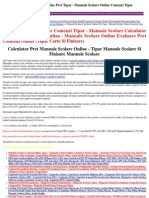

No information is available for this page.Learn why.
Roland Michell is an American scholar trying to make it in the difficult world of British Academia. He has yet to break out from under his mentor's shadow until he finds a pair of love letters that once belonged to one of his idols, a famous Victorian poet. Michell, after some sleuthing, narrows down the suspects to a woman not his wife, another well known Victorian poet. Roland enlists the aid of a Dr. Maud Bailey, an expert on the life of the woman in question. Together they piece together the story of a forbidden love affair, and discover one of their own. They also find themselves in a battle to hold on to their discovery before it falls into the hands of their rival, Fergus Wolfe.
A visiting American scholar is paging through an old volume at the British Museum when he comes upon a letter stuffed between the pages--a love letter, it would appear, from Queen Victoria's poet laureate, addressed to a woman not his wife. The poet has been held up for more than a century as a model of marital fidelity. The letter is dynamite.
The scholar slips the letter out of the book and into his portfolio, and is soon displaying it, with all the pride and uncertainly of a new father, to a British woman who knows (or thought she knew) everything about the poet. The American, named Roland Michell (), is professionally ambitious but has a block against personal intimacy.
The British expert, named Maud Bailey (), is suspicious of love, suspicious of men, suspicious of theories that overturn a century of knowledge about her speciality. Rook wwwe. Together, warily, edgily, they begin to track down the possibility that the happily married Randolph Henry Ash did indeed have an affair with the 19th century feminist and lesbian Christabel LaMotte. Two modern people with high walls of privacy are therefore investigating two Victorians who in theory never even met. This setup from A.S. Byatt's 1990 Booker Prize-winning novel would seem like the last premise in the world to attract director Neil LaBute, whose ' and 'Your Friends & Neighbors' were about hard-edged modern sexual warfare.
But look again at the romantic fantasies in his overlooked ' (2000), about a housewife in love with a soap opera character and a killer in love with a photograph of the housewife, and you will see the same premise: Love, fueled by imagination, tries to leap impossible divides. The film, written by, and LaBute, uses a flashback structure to move between the current investigation and the long-ago relationship. Plays Ash, an upright public figure, and is Christabel, a pre-Raphaelite beauty who lives with the darkly sensuous Blanche Glover (). The nature of their relationship is one of the incidental fascinations of the movie: At a time before lesbianism was widely acknowledged, female couples were commonly accepted and the possibility of a sexual connection didn't necessarily occur. Blanche is the dominant and possessive one, and Christabel is perhaps not even essentially lesbian, but simply besotted with friendship. When she and Ash make contact, it is Blanche, not Ash's unbending wife, who is the angered spouse. In the way it moves between two couples in two periods, 'Possession' is like Karel Reisz's ' (1981).

That film, with a screenplay by, added a modern couple that didn't exist in the John Fowles novel, and had both couples played. The notion of two romances on parallel trajectories is common to both films, and intriguing because there seem to be insurmountable barriers in both periods. Ash and Christabel are separated by Victorian morality, his marriage and her relationship. The moderns, Maud and Roland, seem opposed to any idea of romance; she has her own agenda, and he is reticent to a fault. 'You have nothing to fear from me,' he tells her early on, because he avoids relationships. Later, when they find themselves tentatively in each other's arms, he pulls back: 'We shouldn't be doing this; it's dangerous.'
- Author: admin
- Category: Category

No information is available for this page.Learn why.
Roland Michell is an American scholar trying to make it in the difficult world of British Academia. He has yet to break out from under his mentor's shadow until he finds a pair of love letters that once belonged to one of his idols, a famous Victorian poet. Michell, after some sleuthing, narrows down the suspects to a woman not his wife, another well known Victorian poet. Roland enlists the aid of a Dr. Maud Bailey, an expert on the life of the woman in question. Together they piece together the story of a forbidden love affair, and discover one of their own. They also find themselves in a battle to hold on to their discovery before it falls into the hands of their rival, Fergus Wolfe.
A visiting American scholar is paging through an old volume at the British Museum when he comes upon a letter stuffed between the pages--a love letter, it would appear, from Queen Victoria's poet laureate, addressed to a woman not his wife. The poet has been held up for more than a century as a model of marital fidelity. The letter is dynamite.
The scholar slips the letter out of the book and into his portfolio, and is soon displaying it, with all the pride and uncertainly of a new father, to a British woman who knows (or thought she knew) everything about the poet. The American, named Roland Michell (), is professionally ambitious but has a block against personal intimacy.
The British expert, named Maud Bailey (), is suspicious of love, suspicious of men, suspicious of theories that overturn a century of knowledge about her speciality. Rook wwwe. Together, warily, edgily, they begin to track down the possibility that the happily married Randolph Henry Ash did indeed have an affair with the 19th century feminist and lesbian Christabel LaMotte. Two modern people with high walls of privacy are therefore investigating two Victorians who in theory never even met. This setup from A.S. Byatt's 1990 Booker Prize-winning novel would seem like the last premise in the world to attract director Neil LaBute, whose ' and 'Your Friends & Neighbors' were about hard-edged modern sexual warfare.
But look again at the romantic fantasies in his overlooked ' (2000), about a housewife in love with a soap opera character and a killer in love with a photograph of the housewife, and you will see the same premise: Love, fueled by imagination, tries to leap impossible divides. The film, written by, and LaBute, uses a flashback structure to move between the current investigation and the long-ago relationship. Plays Ash, an upright public figure, and is Christabel, a pre-Raphaelite beauty who lives with the darkly sensuous Blanche Glover (). The nature of their relationship is one of the incidental fascinations of the movie: At a time before lesbianism was widely acknowledged, female couples were commonly accepted and the possibility of a sexual connection didn't necessarily occur. Blanche is the dominant and possessive one, and Christabel is perhaps not even essentially lesbian, but simply besotted with friendship. When she and Ash make contact, it is Blanche, not Ash's unbending wife, who is the angered spouse. In the way it moves between two couples in two periods, 'Possession' is like Karel Reisz's ' (1981).

That film, with a screenplay by, added a modern couple that didn't exist in the John Fowles novel, and had both couples played. The notion of two romances on parallel trajectories is common to both films, and intriguing because there seem to be insurmountable barriers in both periods. Ash and Christabel are separated by Victorian morality, his marriage and her relationship. The moderns, Maud and Roland, seem opposed to any idea of romance; she has her own agenda, and he is reticent to a fault. 'You have nothing to fear from me,' he tells her early on, because he avoids relationships. Later, when they find themselves tentatively in each other's arms, he pulls back: 'We shouldn't be doing this; it's dangerous.'